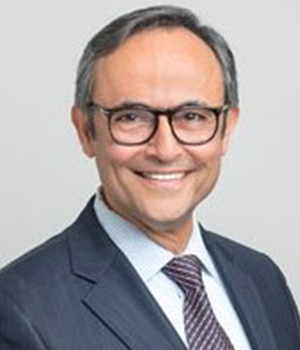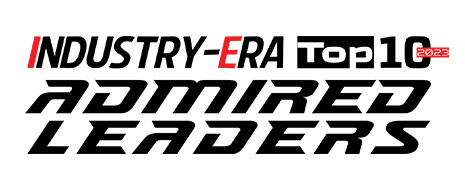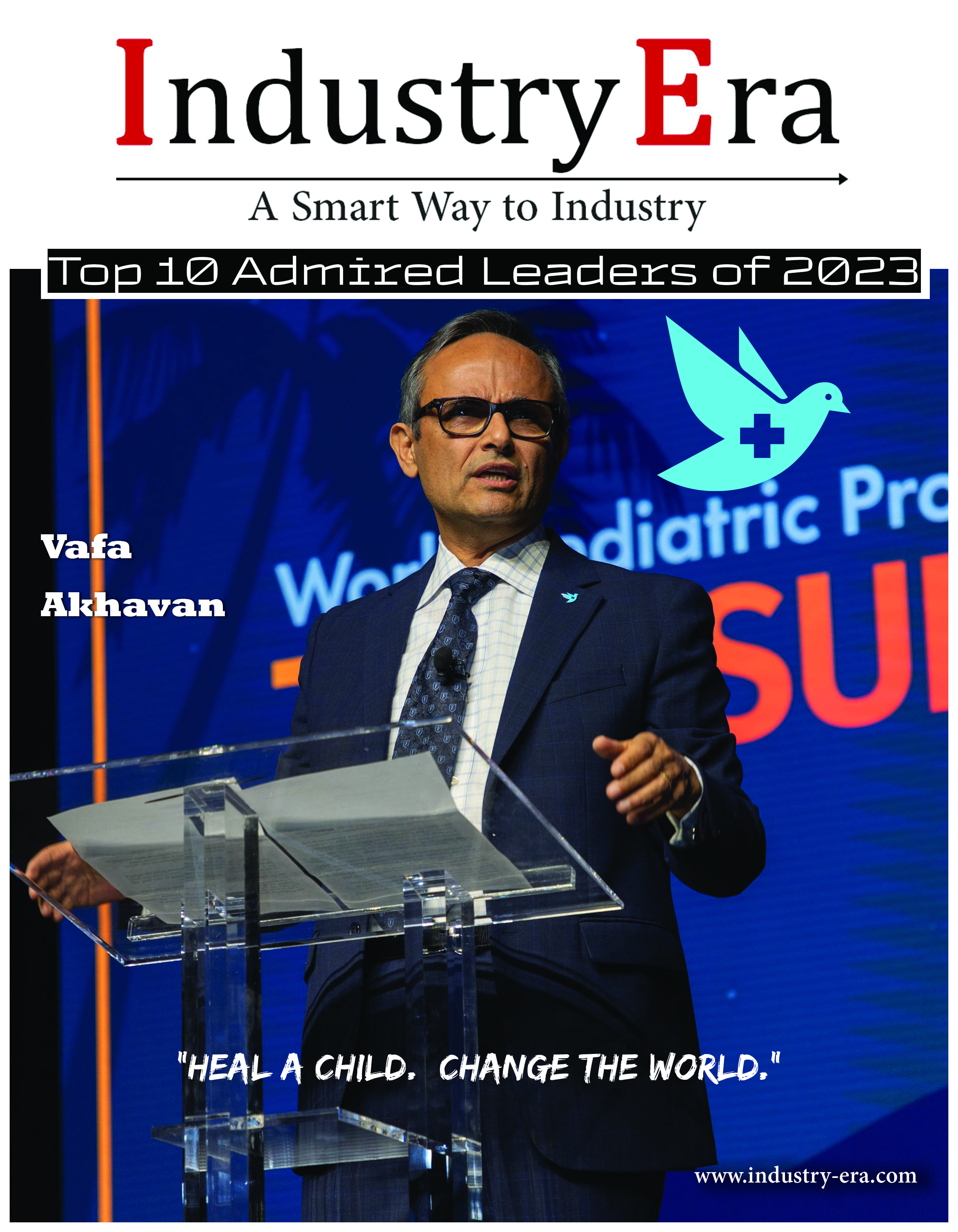
Vafa Akhavan
Chief Executive Officer
World Pediatric Project

“Heal a Child. Change the world.”
Not all leaders have a remarkable identity to exhibit. We believe that asking top executives strategic questions is a potent way to get insights, create relationships, progress the careers of those who need motivation, and gain their focus while building their businesses. We wanted to learn how Vafa Akhavan demonstrates his significance as Chief Executive Officer of “World Pediatric Project", or WPP.
World Pediatric Project is a 23-year-old non-profit organization that is a global leaders in tertiary pediatric care. It is present in 11 countries, focused in the Caribbean and Latin American regions and expanding. It provides direct surgical care, removes barriers to access for children, and builds capacity for sustainable transformation of tertiary pediatric health systems.
“MAKE THE WORLD A BETTER PLACE WITH US.”
Vafa has travelled a long and diversified journey to be where he is. He has worked in more than 6 industries and 15 countries. He also worked with great leaders, great partners, mentors and great teams. He often refers to “a journey of learning” that resulted in where he is today.
The leader that would stand out most is Harry Sachinis. He was CEO at Business Information Group, a segment of McGraw Hill. Vafa moved to work with Harry after McGraw Hill acquired J.D. Power where Vafa served.
“I really wanted to work with him. I didn’t see any ego, any hierarchy. Constant encouragement, challenging me to be better, always the environment for frank and honest discourse. He just wanted the best.”
Tom Bond has been the longest business partner that Vafa has had. “We’ve been working together for more than 20 years. We are very different people, but at the core we share a common set of values. There’s great synergy in competencies and capabilities. We have a great deal of respect for each other, particularly for the other’s expertise. There is no ego and most important of all it’s all built on trust earned and lived over time.”
Vafa’s peers at McGraw Hill are noteworthy colleagues. He learnt a great deal from them. “Safi Bajwa, Patrik Dyberg, Potoula Chresomales, Gina Pingitore, Dan Aks, Bill Harper…and then there were others at J.D. Power. His long time mentor, Donald B. Johnston has been a constant force. What characterized these relationships were a sense of partnership, collaboration, common purpose, and lack of ego. This made for a great culture and enabled best results.”
Vafa believes one of the most important roles of leaders is to have the right team and create the environment for it to achieve excellence. He describes his managerial style more as situational. “I typically adjust based on the needs of the situation, while striving to remain true to the core. If the house is on fire, an inclusive decision-making process may not work best.” “Resilience and agility are key attributes for leaders as the pace of change accelerates”, Vafa says.
Keeping the team’s morale high and focused on the outcomes is another key role of leadership that Vafa expands on. It is important as a leader to recognize that leadership is a journey of learning and development. So, while you’re constantly trying to keep teams motivated, on task and boost morale, you’re also learning about what works and doesn’t work in a given situation so that you can always improve.
The team at World Pediatric Project stays on task first because they share a common passion and purpose that are centered around the most vulnerable of the vulnerable children. Then there’s the organizational structure and operating model, that are intentional and purposeful, disciplined, always trying to connect what they do to outcome and linkage to purpose.
Boosting morale can be both simple and complex. At WPP the team always highlights the purpose of the work. Many of the team have been in the field with others that are in the field working with the children. That experience is a huge morale booster. It is the singular source of inspiration. Then there are basic things: most importantly to genuinely care about your team. “We work in a hybrid mode and are quite flexible”, Vafa continues.
“We ask that our team be accessible, responsive, and achieve results/outcomes. You need to come in late and leave early because you drop off and pick up your children from school? Not a worry. Are you accessible, responsive, and achieving the results? We aim to create an environment conducive to our people doing their best work. This means empowering them to make their decisions about what work-life convergence means for them in the context of the work we do, and then we are all held accountable.”
We asked Vafa about how they deal with disagreements and how they handle complaints. “Ego should be checked at the door” Vafa started. “Different perspectives and ideas are shared, disagreement may be voiced, it could be animated, but whatever is offered by someone belongs to everyone. Once you let go of your idea, then you are ready to receive additional insights and change or pivot as quickly as new insights are offered that add value to the discourse.” “A great culture”, Vafa said “is one where we don’t have complaints, but rather we have questions to answer, obstacles to overcome, barriers to break through, together as a united team.
Much has changed at WPP. The new outcomes include increasing the number of children served, reducing the time it takes for them to get the care and growing the impact on the lives of the children, their families, therefore their communities. This has meant, for example, that decisions and resources are decentralized and pushed into the regions, while partnering with more facilities around the world for ease of access for children.
Another change at WPP relates to how the staff view themselves. One of the keys they constantly refer to is that they are accountable to the children they serve and consider themselves to be the custodians of the assets given to them by their donors and partners in service to the children.
Vafa continued, “These are aspirational practices, and we try to implement them as best as possible. Are we perfect? No, no organization is. But the point is to strive towards that condition of excellence.”
We also wanted to learn from Vafa about the qualities he seeks in an employee, as well as the behaviors and the levels of performance that is desirable. He believes that having the right qualifications, experiences, competencies, etc. is what gets a prospective employee the conversation. But the invitation to join the team comes because of fit.
What he looks for is constructive resilience. He wants to know if the person can embrace change and ambiguity in a world where the pace of change is accelerating. Can they build trust between each other, because ultimately it is the cornerstone of all relationships. Can they think big, start small, launch fast and be able to pivot quickly based on new insights? Are they curious and continuously learning as part of your DNA?
“No matter what position in the organization, I look for the person occupying that position to be doing their best, to strive to achieve excellence, to demonstrate a sincere drive to learn, and to build trust. Top performance never points to something else as the cause of underperformance. High performers are always looking for the root cause, the best solution, and making the greatest effort. They are genuine.”
Teams are motivated and encouraged by various elements, Vafa believes. Having the right people in the right positions is important. Critical to success is how they play together as a team. There needs to be clarity around what is to be achieved. The necessary resources have to be in place for the team. A plan of action must be developed and agreed upon. A balance in work and life has to be accommodated. And there has to be room for failure and learnings from it. “There’s a great sense of relief, therefore motivation, when someone believes they made a mistake, and might be fearful of consequences, but get an encouraging response”, Vafa said.
Every leader has something that they are particularly proud of. For Vafa, it is the changes that have taken place and the work they do at WPP. They are serving children at about the same level as pre-Covid pandemic. Their revenues are growing and diversifying. Their expense to outcome ratio is improving. And there is a new culture emerging. “It’s incredible what this team has accomplished since I joined. They are the true stars of this journey and transformation.”
Of course, there are always challenges. Vafa’s most significant challenge is human resources. “The most common denominator in all things” Vafa states “is the person. At the root of all things is a person’s decision. Get the person right, and the decision will be right.”
The future of World Pediatric Project is very bright, Vafa believes. “We are certainly growing and expanding. We are doing more direct care. We are removing more barriers to access. We are serving more children. Capacity building is expanding. And we are partnering to transform health systems for a more sustainable outcome.” WPP has a three-track approach, i.e. continue to serve the immediate need by removing barriers in access to surgical care for children, to build the capacity within countries and regions themselves to serve their communities and those in the region, and to address global health issues, beginning with NICU training and development. “We also see opportunities for expanding our partnerships and leveraging potential mergers that can accelerate serving more children. Meanwhile, we’ll always stay focused by challenging and testing our decisions against our strategy and purpose.”
Vafa continued, “This is an incredible journey. Heal a child, change the world is not just a slogan at WPP. It is a belief system. They are 30% of the population but 100% of our future.”

Company
Management
Vafa Akhavan
Chief Executive Officer
World Pediatric Project
Description
World Pediatric Project is an international non-profit organization bridging the gap in lack of access to advanced pediatric healthcare in the world.

